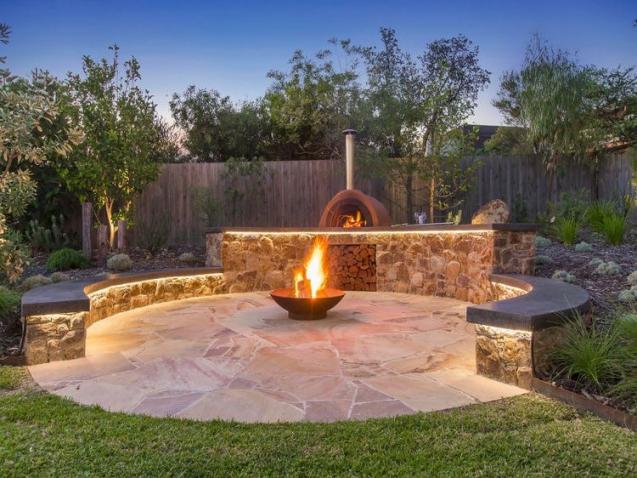
Building Certification
By HOUSPECT Building and Pest Inspections|August 01, 2019
The question of whether to choose a council or private certifier is one that troubles many new home owners. Both can perform the same services but it is how they go about the job that separates the two.
A council certifier cares nothing for the logistics of making your dream build or renovations become a reality. His only concern is carrying out a development assessment, which generally consists of two parts, to ensure that the work is in compliance with the Development Act 1993 and Development Regulations 2008 legislation.
So, what does a private certifier bring to the table that a council certifier cannot provide? First of all, it is important to keep in mind that every private certifier is different. You want to ensure that your build is compliant with the rules; otherwise you will not be permitted to occupy the property when work is complete. However, there are some general Pros and Cons of using a Private Certifier in South Australia.
Development Assessment Flexibility
There is a misconception that private certifiers are allowed to bend the rules when it comes to development assessment. However, this simply is not true. A private certifier is bound by all the same rules as a council certifier. The difference is, the council certifier is more focused on ticking all the right boxes, whereas a private certifier may be prepared to work with you to identify alternatives that are within the rules.
If you want a bit of breathing space to explore all your options, a private certifier is the way to go. Most builds won’t encounter problems at the development assessment point. Having the peace-of-mind of knowing that your certifier is flexible can reduce the stress associated with a building project.
Private Certifier Cost
Generally, a private certifier will cost more so it is important to shop around, using the council certifier cost as a benchmark. Higher cost is not a guarantee that a private certifier will provide better services. Look for references and ensure that the certifier is registered and holds relevant building surveying qualifications.
It is also worth noting that cost can vary dramatically from council to council. Do your homework and make sure that hiring a private certifier is within your budget. Completing the project without breaking the bank is an essential consideration.
Process Timeframe
As it stands, hiring a private certifier typically results in a much faster development assessment. However, changes that come into effect in 2020 are designed to make the processing time for development assessments through South Australia councils faster. You can learn more about the reformed planning system by visiting the SA Planning Portal.
Hiring a private certifier doesn’t mean you won’t encounter delays. The rules are in place to keep you, your family and the wider public safe. If the certifier is doing his job, delaying or denying certification means you need to make changes to ensure that the build is in compliance with relevant building codes.
Accountibility
It is generally accepted that council certifiers have greater accountability. Again, this is not entirely true. When you hire a private certifier, he is held to the same standards as his council counterpart. The issue that a lot of homeowners and developers encounter is unreliable private certifiers who do not have sufficient qualifications or experience. That is not to say you are going to have a bad experience with a private certifier. Doing a background check and other due diligence should save you any stress.
If you would like to learn more about the pros and cons of hiring a private certifier; or for information on building inspections, give Houspect in South Australia a call today.
A council certifier cares nothing for the logistics of making your dream build or renovations become a reality. His only concern is carrying out a development assessment, which generally consists of two parts, to ensure that the work is in compliance with the Development Act 1993 and Development Regulations 2008 legislation.
So, what does a private certifier bring to the table that a council certifier cannot provide? First of all, it is important to keep in mind that every private certifier is different. You want to ensure that your build is compliant with the rules; otherwise you will not be permitted to occupy the property when work is complete. However, there are some general Pros and Cons of using a Private Certifier in South Australia.
Development Assessment Flexibility
There is a misconception that private certifiers are allowed to bend the rules when it comes to development assessment. However, this simply is not true. A private certifier is bound by all the same rules as a council certifier. The difference is, the council certifier is more focused on ticking all the right boxes, whereas a private certifier may be prepared to work with you to identify alternatives that are within the rules.
If you want a bit of breathing space to explore all your options, a private certifier is the way to go. Most builds won’t encounter problems at the development assessment point. Having the peace-of-mind of knowing that your certifier is flexible can reduce the stress associated with a building project.
Private Certifier Cost
Generally, a private certifier will cost more so it is important to shop around, using the council certifier cost as a benchmark. Higher cost is not a guarantee that a private certifier will provide better services. Look for references and ensure that the certifier is registered and holds relevant building surveying qualifications.
It is also worth noting that cost can vary dramatically from council to council. Do your homework and make sure that hiring a private certifier is within your budget. Completing the project without breaking the bank is an essential consideration.
Process Timeframe
As it stands, hiring a private certifier typically results in a much faster development assessment. However, changes that come into effect in 2020 are designed to make the processing time for development assessments through South Australia councils faster. You can learn more about the reformed planning system by visiting the SA Planning Portal.
Hiring a private certifier doesn’t mean you won’t encounter delays. The rules are in place to keep you, your family and the wider public safe. If the certifier is doing his job, delaying or denying certification means you need to make changes to ensure that the build is in compliance with relevant building codes.
Accountibility
It is generally accepted that council certifiers have greater accountability. Again, this is not entirely true. When you hire a private certifier, he is held to the same standards as his council counterpart. The issue that a lot of homeowners and developers encounter is unreliable private certifiers who do not have sufficient qualifications or experience. That is not to say you are going to have a bad experience with a private certifier. Doing a background check and other due diligence should save you any stress.
If you would like to learn more about the pros and cons of hiring a private certifier; or for information on building inspections, give Houspect in South Australia a call today.



